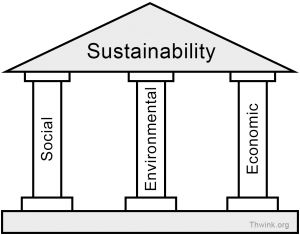Slow Down Fast Fashion
Fast fashion refers to the “phenomenon in the fashion industry whereby production processes are expedited in order to get new trends to the market as quickly and cheaply as possible.” We all know that fashion is ephemeral. Fashion trends are transient, impermanent and very short-lived. Our world is extremely fast paced with our preferences, style and trends changing by the second. Dominant clothing brands such as H&M, Topshop, Forever 21 and Zara are noticing this and has to produce clothing at alarming rates in order to keep up with never ending consumer demands.

The clothing industry has become the second most polluting in the world, right behind the oil industry. Clothing businesses should not be solely responsible for this happening, instead as consumers, we should be held accountable too. Consumers are an essential driving force behind the decisions that a business makes as businesses have to satisfy consumer requirements in order to stay competitive. However, everything has its consequences.
Consumerism is the new silent killer. Societies inclination towards buying more and more, faster and faster. We treat the things to “use” as things to “use-up”. Our insatiable cravings are creating unsustainable demands as consumerism forces clothing brands to cut corners.  Consumerism within the fashion industry puts increasing pressure on the pillars of sustainability – Social, Economical and Environmental as they deteriorate at an appalling speed.
Consumerism within the fashion industry puts increasing pressure on the pillars of sustainability – Social, Economical and Environmental as they deteriorate at an appalling speed.
An Economically sustainable business is one that is stable in terms of production and operation. Many clothing brands use global production which is outsourced production in order to reduce costs and maximize efficiency. Global production is a benefit to the business but it compromises the Social pillar of sustainability. All dominant clothing brands use sweatshops to get “new trends to the market as quickly and cheaply as possible”. Sweatshops are exploitative and inhumane where workers experience long working hours under poor conditions with ridiculously low wages.

The Stakeholder Theory by Edward Freeman states that all stakeholders have to be satisfied to maintain a healthy business. Employees, as a stakeholder are not satisfied, neither is the environment. However, the question is: “should the environment be considered as a stakeholder?”. The answer is yes because it is our planet, our home. With the synthetic fibres, chemical dyes and excessive waste, the fashion industry is taking a toll on the Environmental pillar of sustainability.
I believe that we are not exactly hopeless. The concept “Sustainable fashion” is on the rise as it raises awareness for social and environmental sustainability. And as for consumers, we have our role to play as well. Becoming “conscious consumers” is crucial. Caring more for fellow people and the planet and being able to understand that everything we relentlessly demand has repercussions.

Word Count: 449
Recent Comments